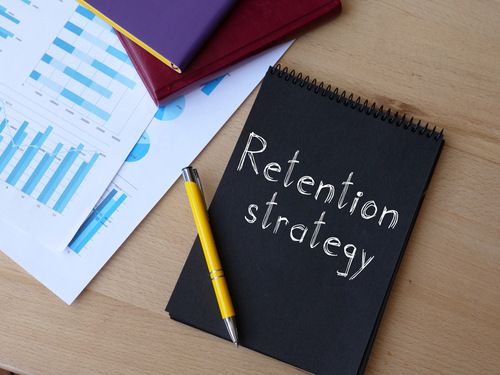Employee impact programs have become table stakes in today’s competitive hiring landscape. Millennial and Gen-Z candidates in particular value and seek out corporations driven by a purpose which aligns to their values.
According to PagerDuty’s recently released FY24 Impact Report, 96% of employees participated in the company’s volunteer, giving, and/or 1:1 donation match program to support a cause they care about, and 86% said the company’s impact efforts made them proud to work there. Based on an internal data analysis, we found volunteerism and giving to be positive retention indicators.
Activating an Impact Mindset
PagerDuty has intentionally taken a holistic approach to creating social impact from early on. Our impact team seeks to mobilize all parts of the company and works with multiple stakeholders—from customers and employees to investors, grantees, and community partners. These efforts come under the 1% Pledge we’ve committed to, which entailed allocating 1% of equity, 1% of product, and 1% of employee-paid volunteer time to philanthropic causes.
As a result, our employee impact programs have become a self-sustaining, integral part of our culture. We’ve cultivated an “impact mindset,” and it starts pre-recruitment and continues through the employee lifecycle. Our volunteering and giving programs are extensive and varied to support the diverse interests of our employees and serve the needs of the communities we operate in. One day there might be a team in the Bay Area donating their time and technical skills to YouthAlive, another day passionate employees might be mentoring young women keen to enter the technology sector in Lisbon, and another day our teams in Chile collaborate to raise money for those affected by wildfires.
We hear from candidates and recent hires that during their interview process, they clearly understood how important giving back to our local communities is and how the philanthropic work of PagerDuty.org contributed to their choosing PagerDuty as the company that best fits their values and career aspirations.
Once they’re hired, employees learn about our company’s vision of a more equitable world and how they can get involved during their onboarding. All employees get 20 hours of paid volunteer time off each year to lend their time, skills, and expertise to organizations and causes of their choice. They track their volunteer time and impact, earning funds to donate. They also partake in collective volunteer activations at annual company events, which extend volunteer opportunities to our global workforce. Many teams incorporate one or more hours of volunteer time into their offsites or quarterly business meetings, getting the C-suite involved as well.
Employee Resource Groups and Community Responders
We also offer year-round opportunities to volunteer with our Employee Resource Groups (ERGs) and through our team of 25 impact champions located in our eight hubs around the world and key remote areas. This opt-in team, known as Community Responders, leads social impact activities at in-person gatherings in their respective regions and creates drop-in virtual opportunities each quarter for any employee to join. For example, employees in Chile lent their expertise in partnership with the nonprofit Propel to provide pivotal support to nonprofits in Latin America.
Fostering a Culture of Volunteering
Job seekers are looking for more from their benefits package than a 401K and vacation time. Research from American Charities found that 71% of employees say it’s imperative to work where there is a culture of giving and volunteering.
Here are six ways to help you foster a culture of social impact, enhancing workplace happiness while retaining employees:
- Integrate impact from day one. Why wait to get started? We embed volunteering in new-hire orientations, encouraging workers to volunteer in their first 90 days and kickstart their social impact journey with a $25 donation credit to a cause they’re passionate about—on us!
- Engage your C-suite. Take a top-down approach. Our executives build giving-back/volunteer hours into executive meetings and offsites. What causes are your leaders passionate about? Are they serving on any nonprofit boards?
- Identify and recognize your volunteers across the business. There are many ways to recognize your volunteers. We reward employees who volunteer with up to $400 in donation credit each year, give a Social Impact award semi-annually to employees who significantly contribute to their communities, and share employees’ stories of giving back to their communities on our Impact Hub website.
- Champion regional impact leaders and forge local community partnerships. Identify local nonprofit organizations that would benefit from support. In FY24, through our local grantmaking program, Community Responders (our social impact champions) selected and partnered with 11 local nonprofits across five continents, deploying $45,000 in funding.
- Offer skills-based and pro bono volunteer opportunities. What do you do well? For us, it’s our technology. Find ways to leverage your core products, services, and skill sets to amplify impact in a way that also serves business objectives.
- Embed volunteerism in your existing events. You don’t need to create stand-alone giving-back events. Leverage your existing key company events, offsites, and meetings for volunteer opportunities.
We’ve found volunteering and giving back have a limited impact when done in silos. A holistic, top-down approach coupled with an impact mindset will help create a culture of volunteerism that not only strengthens employee morale and engagement but also fosters meaningful connections between your organization and the communities it serves.
Nisha Kadaba is an Impact and Tech for Good leader with 15 years of experience working across the nonprofit, social enterprise, and corporate sectors. She is currently at PagerDuty, where she architects strategic programs to mobilize core company assets – technology, people, funding, and voice – to accelerate the impact of mission-driven organizations. Nisha’s passionate about building cross-sector partnerships and initiatives at the intersections of technology, business, and impact that address global challenges and build sustainable livelihoods. Nisha received her MSc degree in Environment and Development at the University of Edinburgh and her BA in Political Science and International Relations from UCLA.

